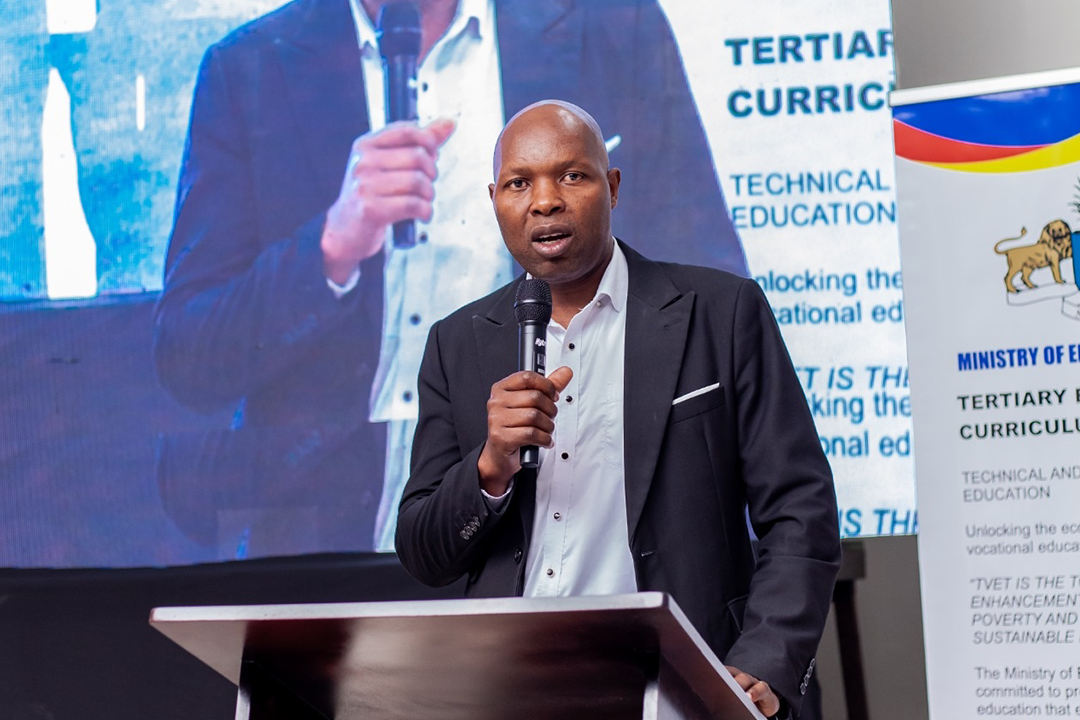BY PHESHEYA IAN KUNENE
MBABANE – The transformative power of artificial intelligence (AI) featured prominently in discussions at the recent Higher Education and Industry Symposium, where delegates unpacked its implications for the workforce. While some expressed concerns about job security, others emphasised the vast opportunities AI presents, urging attendees to embrace lifelong learning and adaptability.
Delegates acknowledged that AI, along with automation and robotics, is reshaping industries and creating new career pathways.
“It is crucial that technology and the advent of AI fit into the broader societal realities. Any technology that would lead to job losses and hardships for people would not be ideal. Technology should be for complementing and improving people’s lives,” noted Dr Samson Sithole, the CEO of EWADE.
The general consensus was that AI whilst inevitable, should not be here to replace humans but to complement their efforts.
“AI can take over repetitive and mundane tasks, freeing us to focus on roles that require emotional intelligence, creativity, and complex problem-solving,” said one speaker.
Discussions highlighted how AI is driving demand for new skills. “Technological expertise will be essential, but so too will social and emotional intelligence and advanced cognitive abilities,” noted Nathi Dlamini, the CEO of Business Eswatini.
Delegates pointed to emerging roles in managing AI systems, ensuring ethical use of technology, and blending human insight with technological innovation.
“While jobs as we know them may evolve, the future will bring new opportunities,” one industry leader noted. “We are entering a phase where people and technology will work side by side. Those who adapt and learn continuously will thrive.”
Some delegates addressed the anxiety surrounding AI.
“It’s natural to feel uncertain, but AI is not something to fear,” Busisiwe Simelane, an academic shared. “Machines cannot replicate our empathy, intuition, or ethical reasoning. These uniquely human traits will remain indispensable, even as technology progresses.”
The delegates encouraged collaboration between HEIs and industries to prepare the workforce for these changes. They called for updated curricula that integrate AI literacy and focus on skills that will remain relevant in a tech-driven world.
Delegates repeatedly underscored the importance of lifelong learning in navigating the AI era. “The workforce of tomorrow must embrace upskilling and reskilling,” said Wandile Sibandze, the Director and a Professional Architect (AESAP). “Whether it is learning to work with AI tools or developing stronger interpersonal skills, continuous education is non-negotiable.”
The symposium also highlighted the need for collaboration across sectors to ensure workers are prepared for the demands of the future. “This is a shared responsibility,” said one panelist concluded. “We need education systems that teach adaptability, industries that offer opportunities to grow, and a culture that values learning at every stage of life.”
While the rise of AI may seem daunting, the message from the symposium was clear – humans are still at the heart of the future of work. By leveraging the power of technology and embracing lifelong learning, society can navigate this transformation with confidence. The future is one where AI enhances, rather than replaces, the human experience in the workplace.







